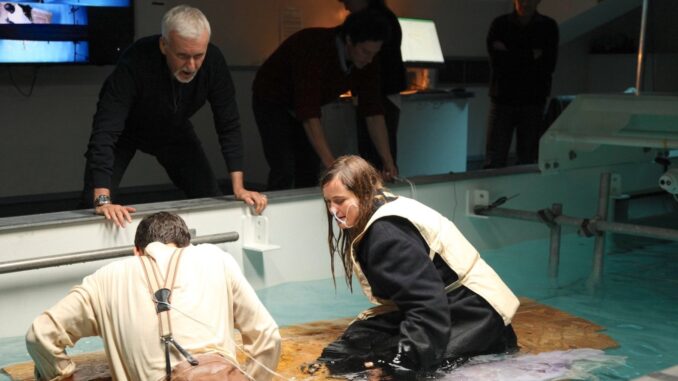
The Ghost of Jack: When Science Confronts Sentimentality on the Titanic's Decks
For decades, the debate has raged hotter than a boiler room fire: could Jack have survived? The image is burned into our collective memory: Rose clinging to the floating wreckage, Jack submerged in the icy Atlantic, eyes wide with acceptance, succumbing to hypothermia. James Cameron, the architect of this cinematic tragedy, has stood firm, insisting that Jack's death was a dramatic necessity. But now, in a twist worthy of the Titanic itself, Cameron, after years of vehement denial and countless audience pleas, has finally admitted, after rigorous testing, that Jack might have, just maybe, squeezed onto that fateful raft. This admission, however hesitant, does more than just rewrite a movie ending; it highlights the fascinating intersection of scientific scrutiny, artistic license, and the enduring power of shared human grief.
Cameron's initial stance was rooted in a narrative prerogative: Jack's death served as a powerful metaphor for sacrifice, for the arbitrary nature of fate, and for the enduring strength of Rose's memory. He argued that the raft wasn't buoyant enough for two, that Jack's demise was essential to the film's thematic core. This justification, however, never fully resonated with audiences. The sheer heartbreak of watching Jack slip beneath the waves, the feeling that a small adjustment could have saved him, fueled years of passionate debate, fan theories, and even Mythbusters experiments, all determined to prove Jack's potential survivability. This collective emotional investment, bordering on obsession, underscored the film's profound impact and the deep connection people forged with its characters.
The recent experiments, conducted with scientific precision, seem to have chipped away at Cameron's steadfast conviction. By replicating the conditions of that night, including the water temperature and the dimensions of the raft, scientists were able to demonstrate that with some ingenuity, both Jack and Rose might have been able to share the flotation device. This revelation, while not definitively proving Jack's survival, throws a wrench into the established narrative. It forces us to reconsider the film's conclusion, not just as a plot point, but as a reflection of our own understanding of hope and loss.
However, Cameron's admission isn't just a vindication for conspiracy theorists. It speaks to the evolving relationship between art and science. The film, a work of fiction, has been subjected to the rigorous scrutiny of the scientific method. This unlikely collision reveals the power of science to challenge even the most deeply ingrained narratives. It also highlights the limitations of art. While art can evoke powerful emotions and explore complex themes, it is not always bound by the constraints of reality. The film's ending, regardless of its scientific plausibility, served a specific artistic purpose.
Furthermore, the ongoing debate underscores the enduring power of grief and the human need to find meaning in tragedy. Jack's death, even in a fictional context, mirrors the real-life loss and devastation experienced by those affected by the Titanic disaster. The persistent desire to find a scenario where Jack survives reflects a deeper yearning to rewrite history, to undo the senseless loss of life, and to find comfort in the face of overwhelming tragedy. In a way, arguing about Jack's survival is a symbolic act of grappling with the larger, more profound grief associated with the sinking of the Titanic.
Ultimately, Cameron's admission, while potentially altering our interpretation of the film's ending, doesn't diminish its impact. The Titanic, both the historical event and the cinematic representation, continues to resonate because it captures fundamental human experiences: love, loss, sacrifice, and the enduring power of hope. Whether Jack could have survived is, in some ways, beside the point. The ghost of Jack will continue to haunt the icy depths of our collective memory, a reminder of the fragility of life and the enduring power of a story that continues to captivate and inspire debate, decades after it first set sail. His potential survival, now seemingly validated by scientific inquiry, offers a glimmer of hope, a small crack in the icy facade of tragedy, allowing a little more light to filter through the depths. And perhaps, that small light is all we ever truly needed.